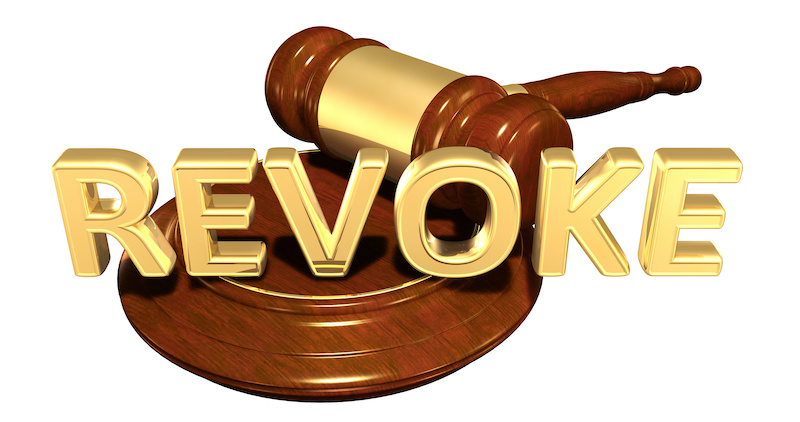
Reasons a Trust May Terminate
Nothing lasts forever. However, estate trusts stretch across generations. In fact, they allow people to keep valuable money and property within a family. However, no trust contains unlimited funds or an interminable time horizon. In the end, every trust eventually ends. This blog post examines reasons for trust termination.
Trust Termination Reasons

The reasons a trust might terminate vary. However, in general, termination occurs because the trust accomplished its purpose. Another reason to terminate is that the trust is no longer economically feasible. Or the trust terminates because the court distributed all associated property. Finally, the trust may be revoked. Another reason for terminating a trust would be because of a dispute or illegality.
All About Trusts

A trust is a legal arrangement in which one person (the trust-maker) places their property in a trust. Then, they appoint someone (a trustee) to hold title to and manage property for the benefit of one or more people (the beneficiaries). The property placed in a trust may include money, real estate, securities, business interests, insurance policies, and other types of assets.

A trust-maker forms a trust. They may make it revocable for future modification while they remain alive and competent. On the other hand, they can create an irrevocable trust. This means that the trust-maker cannot modify or terminate the trust during their lifetime. However, under a limited number of circumstances, they can make changes. Revocable trusts typically become irrevocable upon the trust-maker’s death.

Trust Termination According to Plan
Estate attorneys set up trusts with a specific purpose in mind. They exist to distribute money and property to beneficiaries. The most common reason to end a trust is if the court distributes all the money and property in the trust. In such a case, the trust outlives its usefulness.
Age or Date Trust Termination

The amount of time required to distribute a trust’s money and property depends on its terms. Trust creators sometimes insert clauses. These specify the age a beneficiary can collect trust property. They might indicate that property be transferred to a beneficiary only at the age of 25. More nuanced terms include the beneficiary receiving one-third of the trust property at age 25. Or they may collect one-half of the remainder when they turn 35. Or they could collect the remaining amount at age 45. Conversely, the trust creator could state that the trust automatically terminates on a specific date.
Triggering Event for Trust Termination

Instead of specifying beneficiary age or future trigger date, the creator might include a certain event required for the trust to end. The event could be the beneficiary’s graduation from college, marriage, divorce, or birth of a child. However, the court may deem a triggering event invalid if it places unreasonable restraints on marriage or encourages divorce.
Trust Revocation

With a revocable trust, the trust-maker may revoke the trust at any time and for any reason while they remain alive and competent. However, the trust-maker may even revoke an irrevocable for a variety of reasons.
When Unforeseen Circumstances Force Trust Termination

A trust typically concludes after serving its purpose of distributing money and property to beneficiaries. However, sometimes, contingencies arise which force termination or modification of the trust. The court often intervenes in such cases.
Trust Termination by Trustee or Beneficiaries

A trustee can revoke the trust if the trust-maker expressly granted them authority to do so. If a trustee wishes to terminate a trust but lacks said authority, they can petition the court for a judicial termination. Trust beneficiaries may do the same. The court may order the trust’s termination if they think that termination will not interfere with the trust’s original purpose.
What if the Trust Is No Longer Economically Feasible?

Administering a trust costs money. In fact, 1 to 3 percent of the trust’s value per year goes to cover admin costs. Interested parties might agree that trust administration costs outweigh the benefits of the trust to the beneficiaries. In such a case, the trustee and beneficiaries could petition the court to terminate the trust. Because a negative cost-to-benefit ratio applies to some situations, the trust may include a provision that allows termination if the trust lacks economic feasiblity.
Trust Contest

Beneficiaries can challenge wills and trusts. Often, a trust contest results from a dispute among beneficiaries. Disputes sometimes arise between the beneficiaries and the trustee. Or, in other cases, or someone may believe they should have been a beneficiary. So, they contest the trust. Whatever the reason for a trust contest, these disputes usually end up in court. The court could order the trust’s termination and immediate distribution of property to beneficiaries. On the other hand, the court could place the property in a new trust. Or they could modify the trust’s terms. Or, they might appoint a new trustee.
Legal Reasons for Trust Termination

A court may terminate a trust because they deem it illegal or invalid. Trusts cannot be created for illegal purposes, such as defrauding creditors, depriving a spouse of their rightful elective share, or operating an illegal business. Generally, a trust terminates if its purposes become unlawful or contrary to public policy. Note that some triggering events, such as unreasonably restraining a beneficiary’s marriage, could be prohibited because they go against public policy.
Legal Competency Requirements

In addition, the court must find the trust-maker competent to create a trust. In fact, the court can terminate a trust if they determine it was created under duress, through fraud, or by mistake. Another reason the court could terminate the trust is if the creator was not of sound mind. These arguments apply to a trust contest.
Trust Termination Disagreements

The end of a trust signals the end of an era. A trust may outlive its usefulness and expire without controversy. However, a beneficiary or trustee might question how a trust termination affects their rights and responsibilities. When parties with an interest in a trust fail to agree about its termination, this complicates the process. At the very least, preserve a record of the trust’s closure. An estate planning attorney can help with these and other trust-related issues.
If you have questions about closing a trust, call or contact our law office to speak with an experienced estate planning lawyer such as Vic Skvarna at Skvarna Law Firm.
About Skvarna Law in Glendora & Upland, California

Skvarna Law Firm operates offices in Glendora and Upland, California. Also, we provide legal services. We cover San Bernardino, Los Angeles, Orange, and Riverside Counties. This includes several cities. Upland, Ontario, Rancho Cucamonga, Fontana, Colton, Rialto, Chino, Chino Hills, Glendora, Claremont, Pomona, La Verne, Montclair, San Dimas, Azusa, Covina, West Covina, Diamond Bar, Walnut, La Puente, Corona, Norco & Mira Loma.


